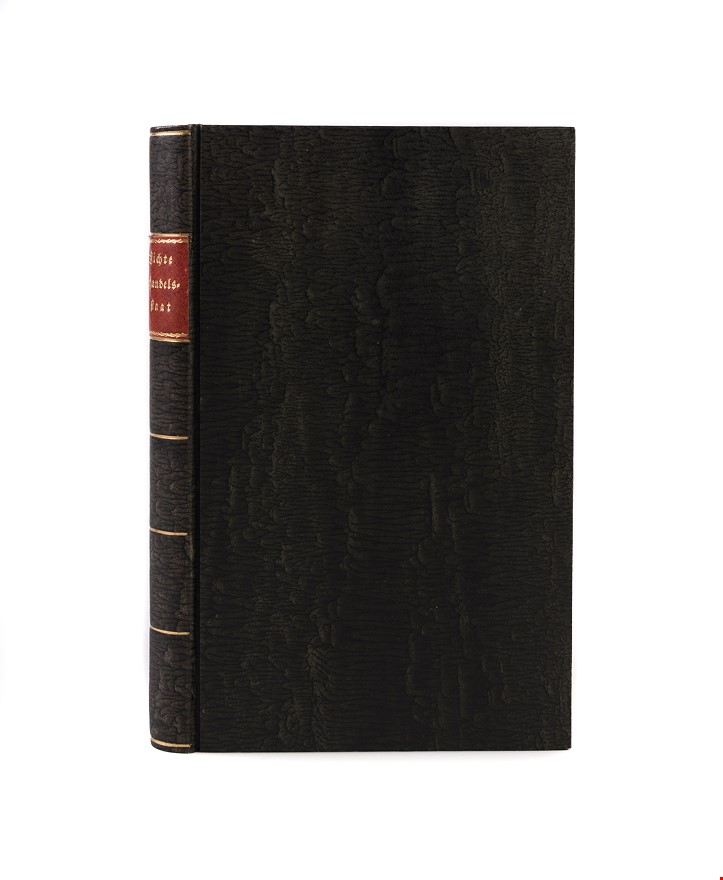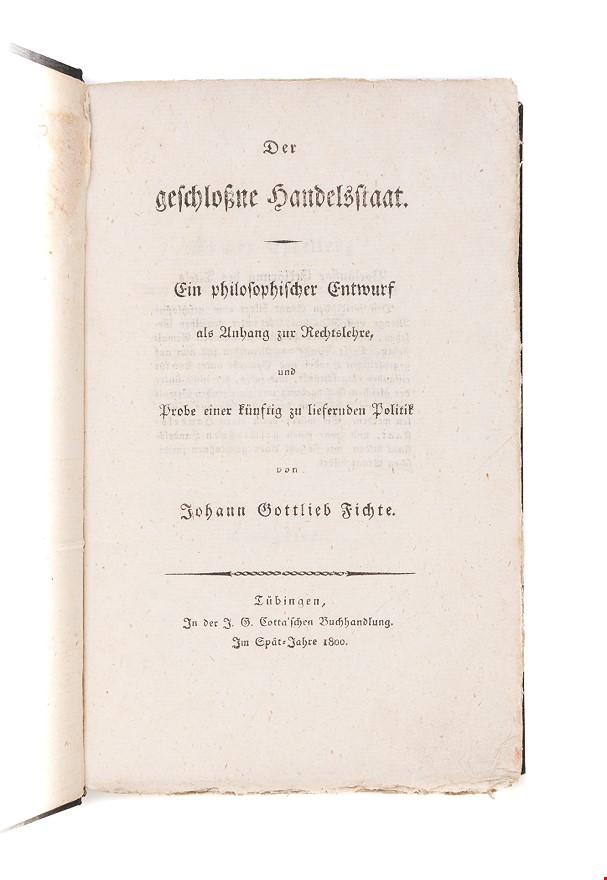Der geschloßne Handelsstaat. Ein philosophischer Entwurf als Anhang zur Rechtslehre, und Probe einer künftig zu liefernden Politik.
FICHTE Johann Gottlieb (1800.)
£1500.00 [First Edition]
Please contact us in advance if you would like to view this book at our Curzon Street shop.
First edition. 8vo. [22], 290 pp. Recent paste paper covered boards, spine ruled in gilt and lettered in gilt on orange label, edges untrimmed. Tübingen, J. G. Cotta
Fichte's principal work on state intervention in the national economy, considered 'the best historical example of implementing Kant's idea of a hypothetical contract in the terrain of modern political economy' (Hunt, p. 170). The germ of the Kantian socialism of the later nineteenth century is clearly evident in the work, and Fichte had a marked influence on a number of later socialists.
Fichte’s thought, heavily influenced by Kant, was primarily concerned with ethics, and a core notion of his moral philosophy was the self-realisation of the dutiful will in devotion to ideal ends. But Fichte was careful to admit consideration of the individual will within an objective social context of reciprocal rights, duties and interests, and he turned his attention, in the present work, to the question of what socio- economic conditions would best conform with ethical imperatives. His answer is in the very title of the work, ‘The Closed Commercial State’. The autarchic society advocated by Fichte would be an entirely self-regulated social economy, requiring government direction of all foreign trade and state action to achieve such goals as the elimination of surpluses, scarcity, or unemployment. Only thus would scope for the autonomous self-fulfilment of all be provided.
Fichte was one of the founders of German idealism, and "through his philosophy he has indirectly exercised great influence on economists, his system giving in outline the theory of development worked out by Hegel, and applied by certain of Hegel's followers to economic history and theory" (New Palgrave II, p. 317).
Baumgartner & Jacobs 51; Goldsmiths’ 17957; Hamburg Commerz-Bibliothek, 1864 Katalog, col. 83; Humpert 7668; Kress B.4130; Menger, col. 163; Stammhammer, Bibliographie des Sozialismus II, 113; Ziegenfuss I, 342.
Stock Code: 234861





